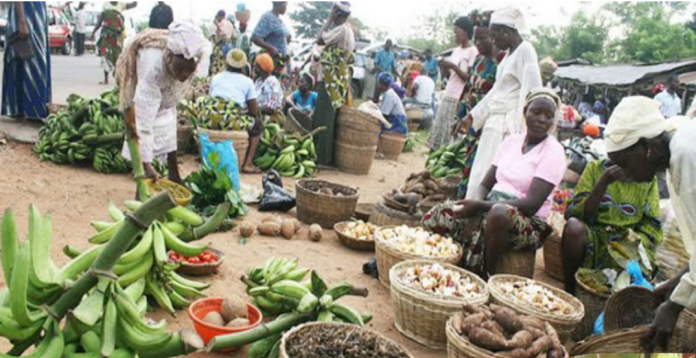There is a popular saying in this country that whatever goes up never comes down. But the Federal Government is trying to change the tide as prices of certain commodities are going down considerably. However, the prices of food have refused to come down. And this is why the recent declaration of National Emergency on food comes to play. It is really a right step in the right direction.
It will be recalled that President Bola Tinubu has declared a National Emergency on food Security and urged African nations to adopt innovative strategies in addressing the continent’s food challenges. He was speaking through the Secretary to the Government of the Federation, Sen George Akume in a ceremony in Abuja.
Food is something that affects everybody and a visit to the market clearly shows that the Federal Government is yet to get it right. Prices of food is still very high and above the reach of most Nigerians and until the government gets it right, the loud complains by the masses would not stop as there is a limit one can endure hunger.
Food security means that all people at all times have access to sufficient, safe and nutritious food that meets the direct needs of the people. It equally means having a steady supply through local production, imports or storage.
Achieving food security is crucial for a human being’s, development and sustainable goals and this can be achieved by promoting farming practices that enhance resilience to climate change and focusing on food production and consumption. Another way of enhancing food security is by food safety and waste reduction.
Food insecurity in Nigeria is a pressing issue affecting millions of people across the country. Several factors contribute to to this problem. They include conflicts and insecurity occasioned in different parts of the country, particularly in the North and south-eastern parts of the country which has disrupted food production, distribution and access, leading to food insecurity.
Other factors are climate change which has led to droughts and floods, which have impacted agricultural productivity and further worsened food insecurity. Rising inflation has reduced purchasing power making it difficult for people to access food of their choice, limited access to fertile land and water for agriculture and thereby contributing to food insecurity.
A notable farmer in Anambra State, Fredrick Ukachi, who spoke on the issue of food security said that the consequences are grave and stark, adding that addressing food insecurity in Nigeria requires a multifaceted approach that includes supporting farmers with resources and training to increase crop yields, enhancing food distribution, strengthening food supply chains and distribution networks to reduce losses.
He, however, acknowledged the fact that the Nigerian government under President Bola Tinubus administration has launched several initiatives to address food insecurity in the country, adding that the key measures include releasing fertilizers and grains, supporting farmers in one way or the other, improving food storage and production.
He added that all these measures are merely scratching the problems of food insecurity and hunger in the land, even as he pointed out that the target farmers have not been met. ‘’The government has not got it right because the real farmers have not been the target. They normally go to those we refer to as “absentee” farmers; who in most cases have no farms and are therefore not productive.” He said that until the government officials decide to do the right things, the problem of food security will continue.
Another respondent who is also a farmer, Izunna Maduka, said that finding a solution to food security in Nigeria is a complex challenge due to some factors. The key ones, according to him, is to declare a Hunger Response Strategy to address the hunger crisis, focussing on getting food to vulnerable population and expand food bank operations, adding that these who are hungry are in the majority and so the rich will not be happy or free to enjoy their wealth.
He proffered solutions to food security, stating that it involves various stakeholders to include supporting smallholder farmers, improving infrastructure, increasing access to the markets, policy implementation, even as he said ‘’For now, the government is just paying lip-service to the issue of food security.
According to him, ‘’by addressing these areas, Nigeria can work towards achieving food security and thereby improving the livelihood of its citizens.
He restated that Nigeria has all it takes to be free from food insecurity with good climate, land, water, among others, just as he reasoned that what the nation needs is good leadership to achieve its goals.
Mr Maduka warned that Nigeria should strive to feed itself because any nation that cannot feed itself is in perpetual slavery. ‘’The government and the people should try as much as possible to avert the impending hunger in the land.’’


